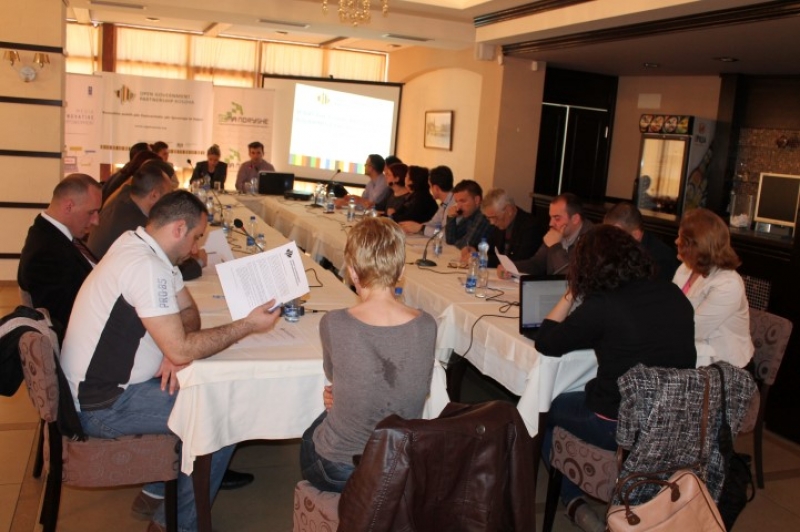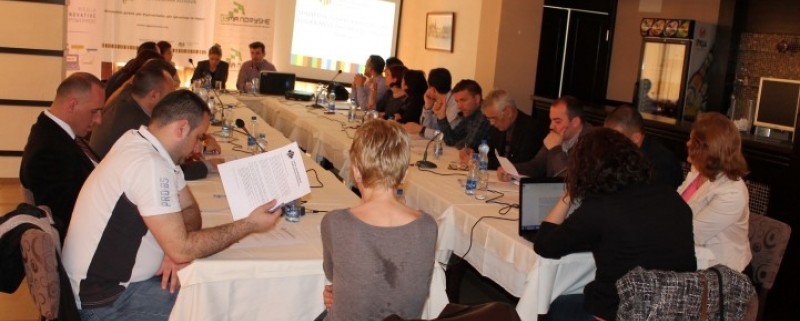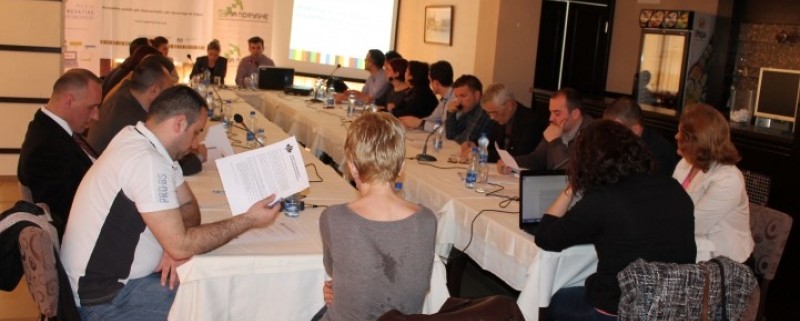Public consultation on Open Government Partnership in Prizren Municipality
Prizren, March 18 2014 – FOL Movement in cooperation with Ec me Ndryshe, as a member of the Coordination Group for Kosovo’s membership in international organization for the Open Government Partnership, organized a public consultation today in Prizren Municipality in order to draft the National Action Plan 2014-2016. This event was attended by representatives of local institutions, civil society, media and interested citizens
Elmedina Baxhaku from Ec me Ndryshe after a brief presentation of the activities of the organization in increasing the transparency of the Prizren Municipality, said that their organization has supported this initiative. She said that through this debate, they were trying to identify the problems that the citizens of Prizren and Kosovo were facing in terms of access to public institutions.
Kenan Tora, from FOL Movement, after a brief introduction of the history of the establishment of Open Government Partnership – OGP (for more information please see OGP background: http://www.ogpkosova.org/what-does -open-government-mean /), and went on explaining briefly the steps that have been taken and have to be taken from Kosovo in order to become a member of the in the Open Government Partnership. He mentioned that the Coordination Group is established which consists of representatives of civil society, institutions and private sector representatives, whose mission is drafting the Kosovo National Action Plan. He said the Coordinating Group has decided that the plan focuses on four main challenges anticipated and suggested by OGP, that is: Improving public services, Increasing public integrity, more efficient public resources management and Increasing corporate accountability. He also said that this public consultation campaign will serve to increase the inclusion of all interested parties in this process and also obtain concrete proposal activities, which will be included in the National Action Plan of the Republic of Kosovo.
Dea Spahiu from UNDP in Prizren expressed the support of the UNDP for Kosovo’s membership process in OGP.
Afrim Tejeci from Handicraft Association in Prizren said they were very committed to having greater transparency by the municipality in terms of the industrial area. “We have had foreign investors who intended to invest in Prizren, but we did not managed to have a plan for the industrial area. We lack such information and we do not know how to explain this to the interested parties since we don’t even know. ”
Aqim Emurli from OSCE said that in Kosovo there are different laws and regulations regarding transparency and accountability, but also there is also manipulation on how citizens are involved in decision making, it is because citizens do not receive a proper invitation and debates are held only for a show. The involvement of citizens in decision-making is particularly important especially on regulatory plans, where “debates are held, but when after the work has begun and thus there are reaction from people because they were not consulted earlier,”.
Veton Ruka from Caritas Suisse, stressed the use of information technology in Kosovo where every citizen has such knowledge. According to him, Municipality’s website should be active and regularly updated so that people begin to use and get more informed.
Naim Cahani from KDI said that information offices should be improved and advanced. Also in public meetings for drafting the budget there should be reports and make them public.
Mentar Karjagdiu from OSCE said that the meetings with citizens regarding the budget should be organized by the Policy and Finance Committee and not by the mayor’s office. “We have noticed that that the Policy and Finance Committee was not very engaged in organizing these debates despite that they are obliged by law to organize these debates,”
Antigona Shestani from OPDMK said that when it comes to transparency and access to institutions “I think that special people should have a special treatment in this regard”. Special people have no access to institutions neither physical access. “


